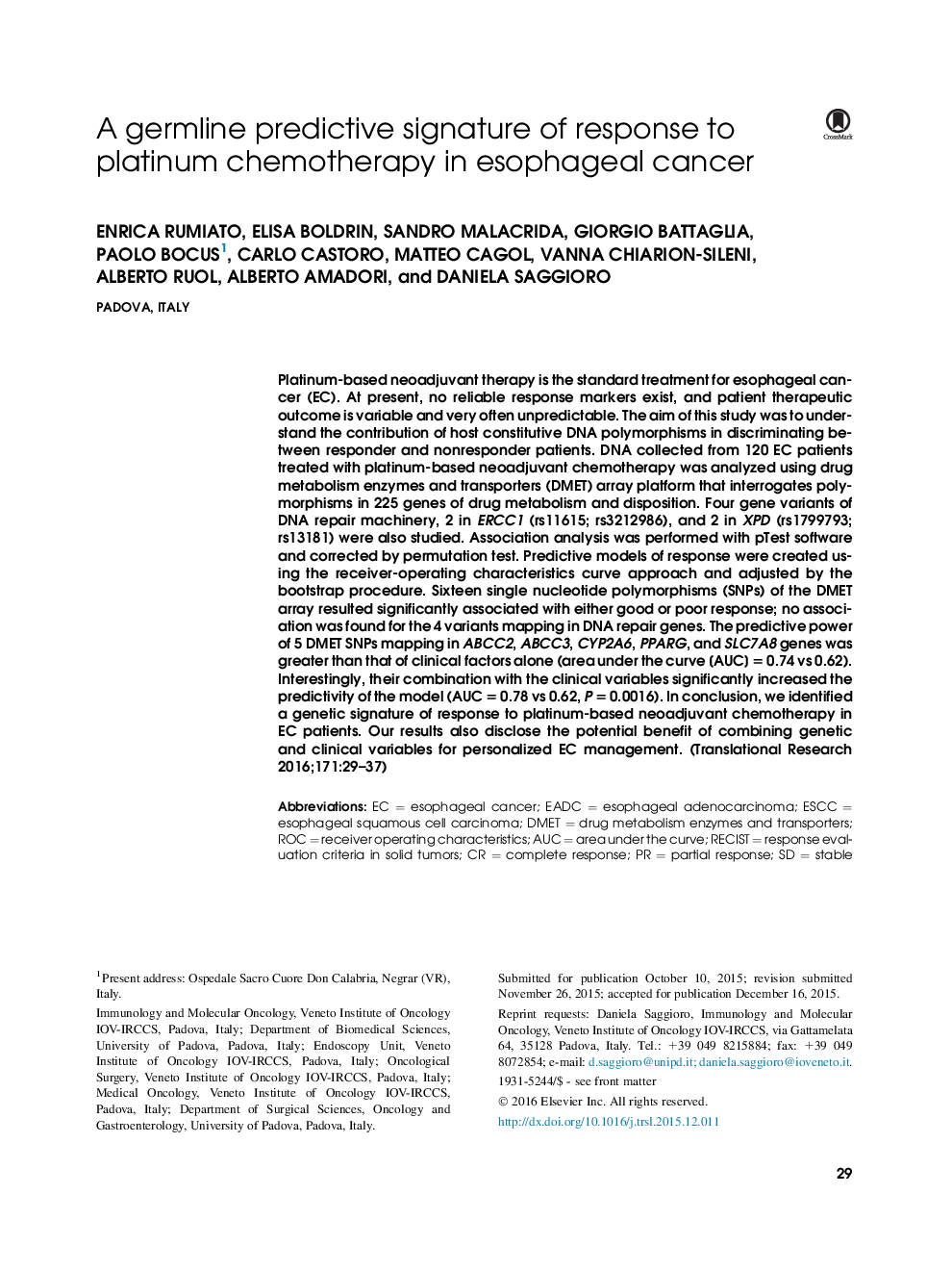| کد مقاله | کد نشریه | سال انتشار | مقاله انگلیسی | نسخه تمام متن |
|---|---|---|---|---|
| 6156007 | 1597939 | 2016 | 10 صفحه PDF | دانلود رایگان |
Platinum-based neoadjuvant therapy is the standard treatment for esophageal cancer (EC). At present, no reliable response markers exist, and patient therapeutic outcome is variable and very often unpredictable. The aim of this study was to understand the contribution of host constitutive DNA polymorphisms in discriminating between responder and nonresponder patients. DNA collected from 120 EC patients treated with platinum-based neoadjuvant chemotherapy was analyzed using drug metabolism enzymes and transporters (DMET) array platform that interrogates polymorphisms in 225 genes of drug metabolism and disposition. Four gene variants of DNA repair machinery, 2 in ERCC1 (rs11615; rs3212986), and 2 in XPD (rs1799793; rs13181) were also studied. Association analysis was performed with pTest software and corrected by permutation test. Predictive models of response were created using the receiver-operating characteristics curve approach and adjusted by the bootstrap procedure. Sixteen single nucleotide polymorphisms (SNPs) of the DMET array resulted significantly associated with either good or poor response; no association was found for the 4 variants mapping in DNA repair genes. The predictive power of 5 DMET SNPs mapping in ABCC2, ABCC3, CYP2A6, PPARG, and SLC7A8 genes was greater than that of clinical factors alone (area under the curve [AUC] = 0.74 vs 0.62). Interestingly, their combination with the clinical variables significantly increased the predictivity of the model (AUC = 0.78 vs 0.62, PÂ =Â 0.0016). In conclusion, we identified a genetic signature of response to platinum-based neoadjuvant chemotherapy in EC patients. Our results also disclose the potential benefit of combining genetic and clinical variables for personalized EC management.
Journal: Translational Research - Volume 171, May 2016, Pages 29-37.e1
